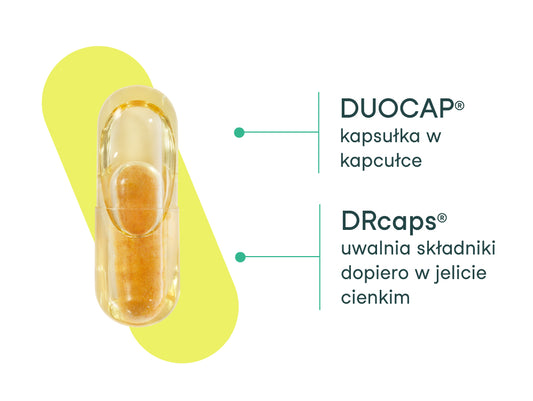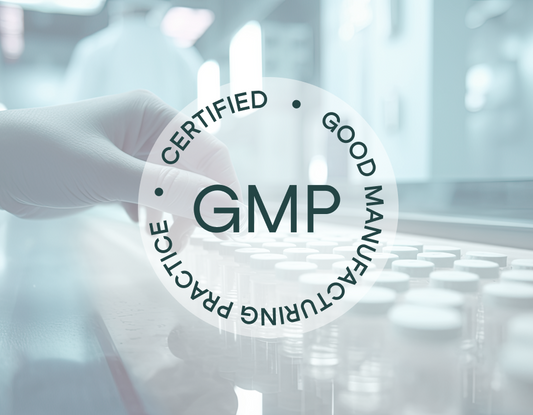
It is needed not only by children and not only in winter, because 90% of Poles lack it. Vitamin D deficiency is associated with depression, infertility, autoimmune diseases and cancer. And to supplement it with your diet, you would have to eat 20 eggs a day.
Vitamin D is primarily associated with bone health and immunity. However, it is extremely important for the entire body. Almost every cell in the body has a special receptor. Thanks to it, vitamin D has a direct effect on our DNA 1 .
Colloquially called "sunny", vitamin D is significantly different from others. This term covers a whole group of substances that the body later transforms into hormones. Therefore, vitamin D itself is referred to as a prohormone . The most bioavailable form of vitamin D is cholecalciferol (vitamin D3 ). We can get it from food in small amounts or produce it ourselves under the influence of sunlight.
Vitamin D from the diet.
Fatty sea fish contain the most vitamin D: mackerel, sardines and herring. However, to meet the daily norm, you would need to eat over 600 grams of mackerel . The situation is similar in the case of other foods, including: chicken eggs. Only 20 whole eggs will provide an adequate dose of vitamin D !
Vitamin D from the sun.
For the body to produce vitamin D in the sun, several conditions must be met:
- large parts of the body are to be exposed and cannot be covered with protective cream,
- there should be no clouds in the sky,
- sunbathing must last at least 15 minutes between 10 a.m. and 3 p.m.
In summer, longer exposure to the sun around noon may lead to skin burns. However, meeting these conditions in the period from September to April is rather impossible. In addition, in winter the sun's rays fall at a different angle. Vitamin D synthesis does not occur, even if we go out in the sun in a swimsuit.
What are the risks of vitamin D deficiency?
Scientific research (which is more and more numerous) confirms that low levels of this vitamin in the blood are dangerous to health at all ages and regardless of gender. Vitamin D deficiency is related to:
- overweight and obesity 2,
- diabetes of both types 3,
- frequent colds and inflammatory diseases 4,
- autoimmune diseases 5 6 (including Hashimoto's disease, multiple sclerosis, psoriasis, ulcerative colitis and Crohn's disease),
- cancer (especially breast 7 , intestines 8 , prostate 9 ) and leukemia 10,
- hormonal disorders causing infertility 11 12 and acne 13,
- cardiovascular diseases and risk of heart attack 14,
- osteoporosis 15,
- neurological diseases, behavioral disorders 16,
- Alzheimer's and Parkinson's diseases 17,
- depression 18 , low mood and general fatigue 19 .
This list is updated by scientists who are constantly discovering new properties of the miraculous vitamin.

Vitamin D supplementation is essential.
To replenish vitamin D deficiencies, it is necessary to supply it from outside . And if you want to maintain it at the appropriate level all year round, supplementation must become a daily habit . Our body can store the "sunshine vitamin" and use it at the most appropriate time - e.g. when you catch a cold.
When supplementing vitamin D, you also need to be careful about the dose - too high a dose may be toxic to the body. Overdose leads to the accumulation of calcium in the blood and causes nausea, vomiting, weakness and frequent urination. In extreme cases, bone diseases and kidney stones may occur. Such consequences may occur if you significantly increase the amount of vitamin intake.
Remember that if you want to know where you stand, you can always go to the laboratory and measure the level of vitamin D in your blood serum. The test is not reimbursed by the National Health Fund.
How to choose the right vitamin D3 supplement?
Choose the quality of what's inside the jar, not its appearance. Make sure that:
- Vitamin D is accompanied by good quality fat . It ensures better absorption because vitamin D is fat-soluble;
- Your capsule will not dissolve in the stomach, but will reach the small intestine , where nutrient absorption is best;
- Your capsule protects its contents well against moisture and oxidation (you don't want to feed yourself with rancid fat?);
- the production process of your supplement takes place in a place that has a GMP (good manufacturing practice ) certificate applicable to medicines. It is not required in the production of supplements, but it guarantees the best quality of the product;
- on the supplement manufacturer's website, you can easily find information about the form, dose, country of origin and supplier of vitamin D.
Bibliography:
- Kongsbak M., Levring TB, Geisler C., von Essen MD, “The vitamin D receptor and T cell function.” Front. Immunol., June 18, 2013
- Vranić L., Mikolašević I., Milić S., “Vitamin D Deficiency: Consequence or Cause of Obesity?”. Medicina (Kaunas), 2019
- Zhang R., Naughton DP, “Vitamin D in health and disease: Current perspectives.” Nutr J 2010
- Yin K, Agrawal DK. "Vitamin D and inflammatory diseases". J Inflamm Res. 2014
- Zhang R, op.cit.
- Yang CY, Leung PS, Adamopoulos IE, Gershwin ME, “The implication of vitamin D and autoimmunity: a comprehensive review.” Clin Rev Allergy Immunol. 2013
- Atoum M., Alzoughool F., “Vitamin D and Breast Cancer: Latest Evidence and Future Steps.” Breast Cancer (Auckl). 2017
- “Vitamin D and Cancer Prevention,” cancer.gov, accessed December 21, 2021.
- Martin R., “Vitamin D and prostate cancer.” World Cancer Rearch Fund International, accessed December 21, 2021.
- Naz AN, Qureshi R., Shamsi ST, Mahboob T., “Vitamin D levels in patients of acute leukemia before and after remission-induction therapy.” Pak J Med Sci. 2013
- Tehrani FR, Behboudi-Gandevani S., “Vitamin D and Human Reproduction” [in]: Gowder S. (ed.), “A Critical Evaluation of Vitamin D - Basic Overview”, 2015.
- Rehman R., Lalani S., Baig M. et al., “Association Between Vitamin D, Reproductive Hormones and Sperm Parameters in Infertile Male Subjects.” Front. Endocrinol., October 16, 2018
- Lim SK, Ha JM, Lee YH et al., “Comparison of Vitamin D Levels in Patients with and without Acne: A Case-Control Study Combined with a Randomized Controlled Trial.” PLoS One. 2016
- Kheiri B., Abdalla A., Osman M., Ahmed S., Hassan M., Bachuwa G., “Vitamin D deficiency and risk of cardiovascular diseases: a narrative review.” Clin Hypertens. 2018
- Okuizumi H., Harada A., “Effect of vitamin D on bone mineral density; bone strength and fracture prevention. Clin Calcium. 2006
- Lauer A., Janitschke D., Hartmann T., “The Effects of Vitamin D Deficiency on Neurodegenerative Diseases”, [in] Fedotova J (ed.), “Vitamin D Deficiency”, June 3, 2019
- As above.
- Anglin RE, Samaan Z., Walter SD, McDonald SD,”Vitamin D deficiency and depression in adults: systematic review and meta-analysis.” Br J Psychiatry, 2013
- Nowak A.,Boesch L., Andres E., “Effect of vitamin D3 on self-perceived fatigue. A double-blind randomized placebo-controlled trial, Medicine, 2016.
- Piotrowska A., Wierzbicka J., Żmijewski MA, "Vitamin D and the skin physiology and pathology". Acta Biochimica Polonica, 2016
- Wadhwa B., Relhan V., Goel K., Kochhar AM, Garg VK, "Vitamin D and skin diseases: A review", Indian Journal of Dermatology, Venereology, and Leprology, 2015.
- Mostafa WZ, Hegazy RA: "Vitamin D and the skin: Focus on a complex relationship: A review", Journal of Advanced Research, 2015.
- Zeratsky K, "What is vitamin D toxicity? Should I be worried about taking supplements?", mayoclinic.org, accessed December 31, 2021.
- Morga J., "Expert: over 90 percent of Poles have vitamin D deficiencies", PAP, February 21, 2014.
- Zhang R., Naughton DP, "Vitamin D in health and disease: Current perspectives". Nutr J 2010
- Beckett EL, Duesing K., Martin C. et al., "Relationship between methylation status of vitamin D-related genes, vitamin D levels, and methyl-donor biochemistry". Journal of Nutrition & Intermediary Metabolism, 2016.


What makes our capsule stand out?
The nikalab capsule impresses not only with its appearance, but also with its operation. We used two innovative...









